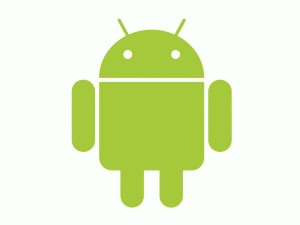 Last week, Bloomberg Businessweek published an article titled Do Not Anger the Alpha Android, in which it detailed the decreasing level of openness and increasing restrictions Google is placing on hardware manufacturers looking to take advantage of the hugely popular mobile OS. Despite receiving plenty of attention, Google has remained mum on the article — until now.
Last week, Bloomberg Businessweek published an article titled Do Not Anger the Alpha Android, in which it detailed the decreasing level of openness and increasing restrictions Google is placing on hardware manufacturers looking to take advantage of the hugely popular mobile OS. Despite receiving plenty of attention, Google has remained mum on the article — until now.
Android head Andy Rubin has just written a blog post that references “misinformation in the press about Android and Google’s role in supporting the ecosystem” and says that he’s going to “attempt to set the record straight.” The gist of his post: we’re the same friendly green robot as we’ve always been. Whether or not people will buy that is another question.
The post highlights a few issues that have been raised in the press. One is the question of whether or not Honeycomb will be open sourced any time soon (Android, which gets plenty of attention for being ‘open’, still hasn’t released the Honeycomb source despite the fact that it’s been on the Xoom for over a month).
Rubin confirms that Honeycomb is in fact being held back as the team makes its features compatible with phones, but asserts that it’s still coming and that it “does not represent a change in strategy”. In other words, Android will keep open sourcing each new version (and my hunch is they’ll try to avoid similar delays in the future to avoid this kind of backlash. I also suspect that Honeycomb won’t actually be open-sourced at all, and that the version of Android that does get released will be Ice Cream Sandwich).
The second issue addressed: whether or not Google is collaborating with ARM to create a standardized Android chipset. Rubin explicitly denies this, saying “There are not, and never have been, any efforts to standardize the platform on any single chipset architecture.”
Finally, and most ambiguously, is the allegation in the Businessweek article that Google “has recently tightened its policies” over what device manufacturers wishing to feature Google apps must agree to. And that’s where things get murky.
In the post, Rubin writes that devices wishing to get the ‘Android-compatible’ stamp of approval have always had to conform with both basic compatibility requirements and anti-fragmentation agreements. Rubin writes that they’ve always been there, and that “there are no lock-downs or restrictions against customizing UIs” — in other words, HTC Sense and its ilk are still fine.
But the Businessweek article includes some allegations that Rubin doesn’t really address, like these:
There will be no more willy-nilly tweaks to the software. No more partnerships formed outside of Google’s purview. From now on, companies hoping to receive early access to Google’s most up-to-date software will need approval of their plans. And they will seek that approval from Andy Rubin, the head of Google’s Android group.
The key words here are “early access”. Yes, as Rubin says, manufacturers can still access the Android code once it’s released and the same old rules apply, but there’s no doubt that Google is giving preferential treatment to certain carriers and hardware manufacturers in return for their cooperation.
And, as the Businessweek article points out, there’s a strong incentive to get first dibs on a new version of Android. You’re first to market, you get loads of press coverage, and so on. Google can dangle this carrot, and then ask for restrictions that go well beyond what it typically requires. Presumably Google uses its own apps, like Maps and Gmail, as a similar (albeit smaller) carrot.
Of course, Google has almost certainly been negotiating such deals since Android first launched. It’s entirely possible given the success of the platform that Google can afford to be more aggressive when it makes its requests to carriers and OEMs — which would explain why they’re upset. Then again, if that means fewer carrier-bundled apps and useless skins, I don’t think users are going to be complaining much.